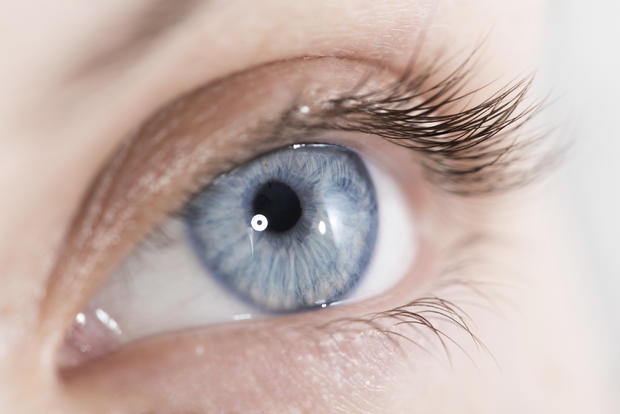What your eyes can reveal about your health
Some 61 million American adults are at risk for losing their eyesight, but only half visited an eye doctor in the past year. And it turns out, vision loss isn't the only reason to see an optometrist or ophthalmologist. A surprising number of other diseases can first show up in the eyes.
Among them: diabetes, high blood pressure and stroke. Dr. Christopher Starr, an ophthalmologist at Weill Cornell Medical Center, says that's because doctors can see clues in the eye that can't be seen elsewhere.
"The eye is unique in the body," Starr told "CBS This Morning." "We can examine blood vessels, we can even examine the brain - the optic nerve is part of the brain - and we can see that in great detail on our eye exams. It's the only place in the body where that's possible."
A swollen optic nerve, for instance, could signal a brain tumor. It could also be the first sign of a stroke or even multiple sclerosis, which is often initially diagnosed through an eye exam, said Starr.
The back of the eye, or retina, also holds clues to overall health. Eye specialists examine the blood vessels, veins and arteries in that area.
"If those are abnormal, if there are little aneurysms or changes in the caliber of those blood vessels, that can be the indicator of hypertension," he said. "Similarly, strokes. We can see little tiny strokes in those blood vessels. And sometimes that can be the indicator that there's atherosclerotic disease in the carotid arteries, which could lead to a massive stroke if not detected."
So when should you see an eye doctor? The American Academy of Ophthalmology (AAO) recommends that healthy adults under 40 schedule a complete eye exam every five to ten years. After 40, those exams should be more frequent:
- age 40 - 54: every two to four years
- age 55 - 64: every one to three years
- age 65 and older: every one to two years
Starr cautions, don't wait until you have a complaint.
"Some asymptomatic problems like glaucoma or even tumors ... can be detected on routine visits," he said.
